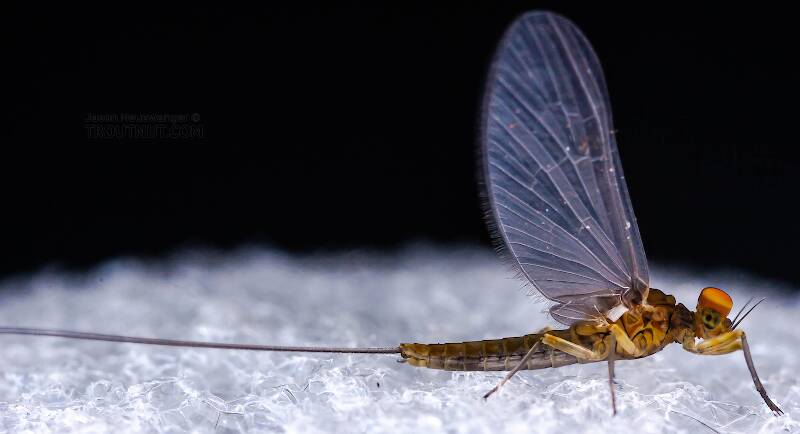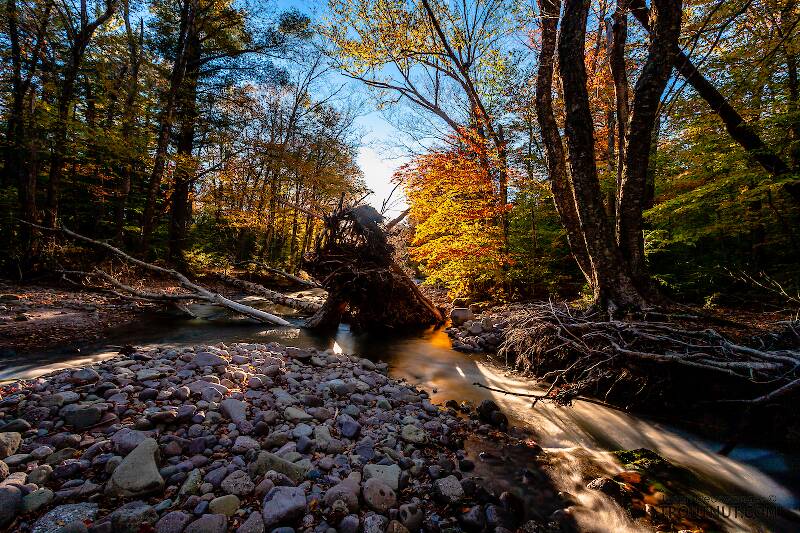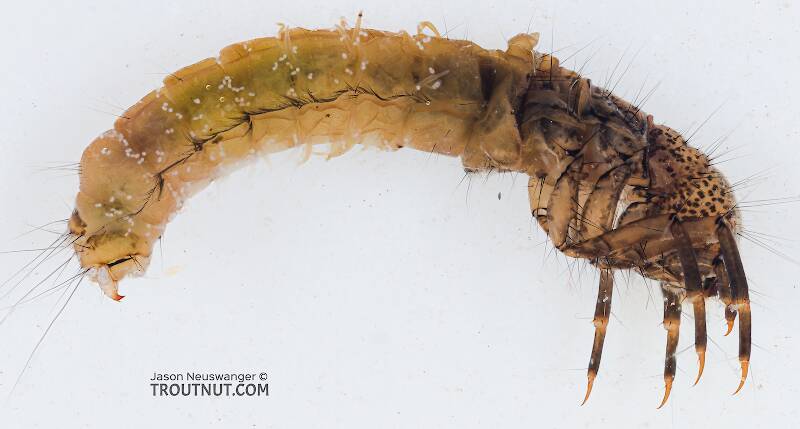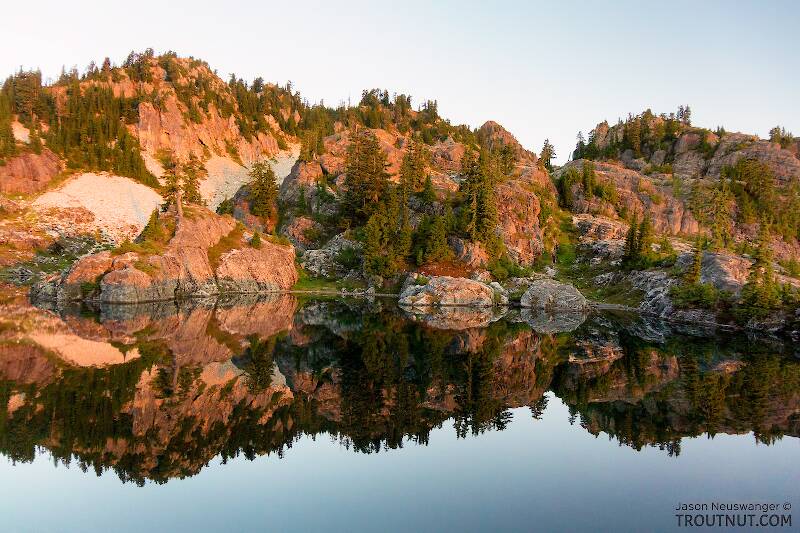The weather was doing the usual high-country dance in which every conceivable look is presented for a few short moments before the beat changes and it's on to something else, only to swing back and repeat moments later.
I coerced Lena out of the sleeping bag at a fairly early hour, i.e. 9:00 am, as part of the deal I'd made not to go fishing by myself while she slept. This gave me a chance to try the lake for Golden Trout again in the morning, but there was no sign of the dozens of fish that were rising in our corner the previous evening.
The most action on the main lake that morning came from a pika, which I watched scurrying to and from its nest in a talus slide carrying bits of grass.
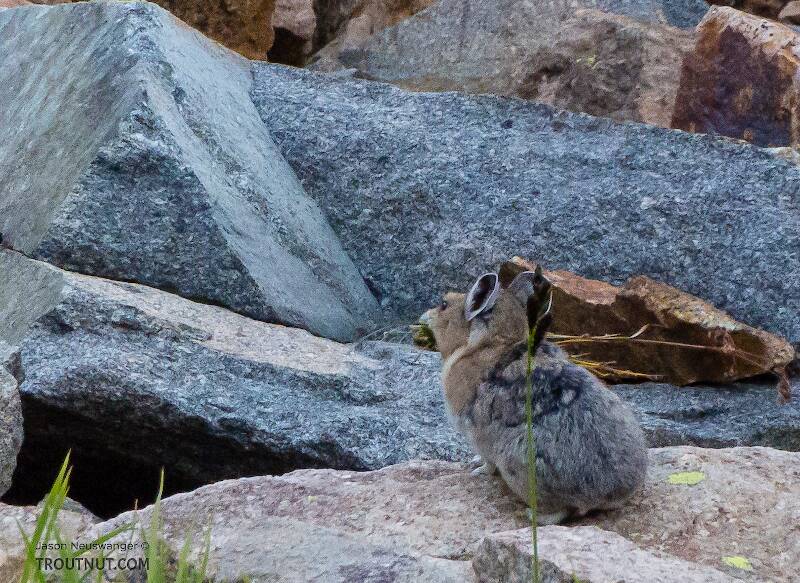
The wildflowers were the second-most-active signs of life, which did not bode well for the fishing.
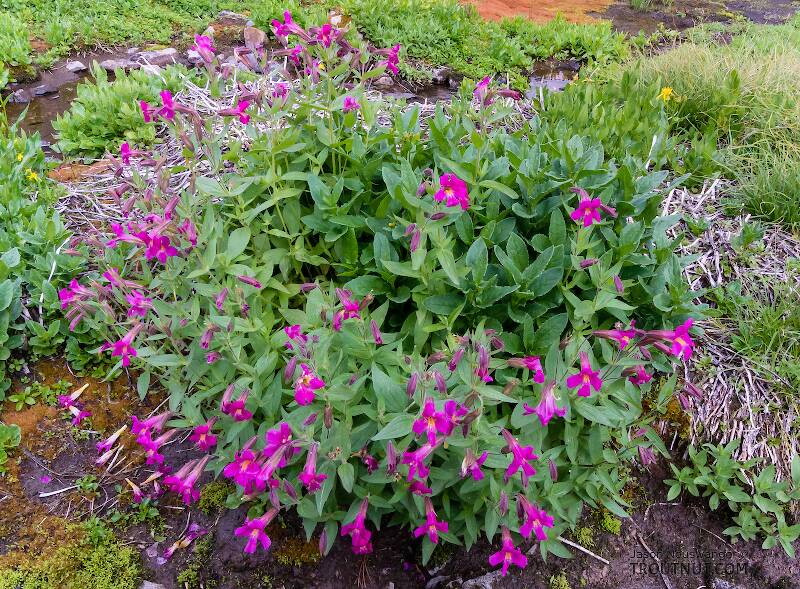
I tried everything I could to lure an unseen trout from the depths with a variety of flies on floating and sinking lines, but there was not so much as a strike or a flash from an active fish. I just wasn't prepared to pursue them in a lake this deep when they weren't active near the top.
Occasionally the sun broke through the clouds and lit up the mountains:
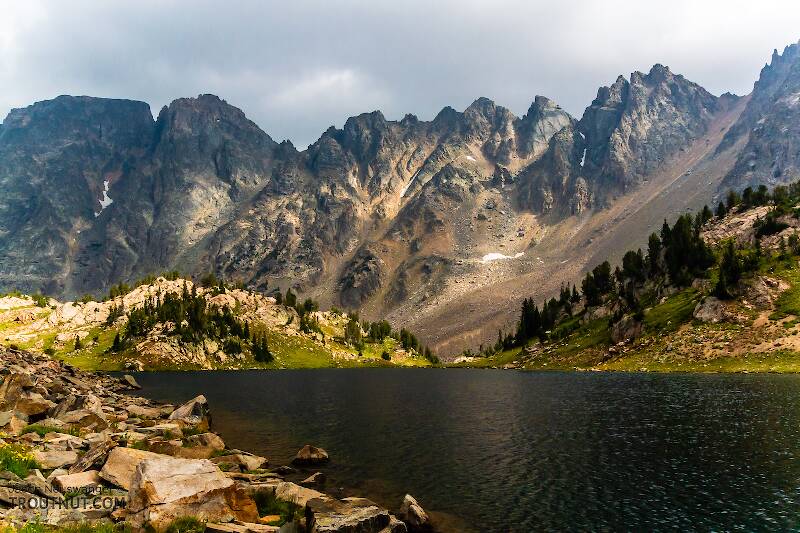
I was ready to give up on the main lake because we had a long trip back to the car, but there was one thing to try first. I had seen on the aerial photos that a small outlet stream led from this lake down to another, very small, unnamed lake before then plummeting through an impassible talus slide toward the rivers at the base of the mountains. I wanted to see what might be caught near the outlet.
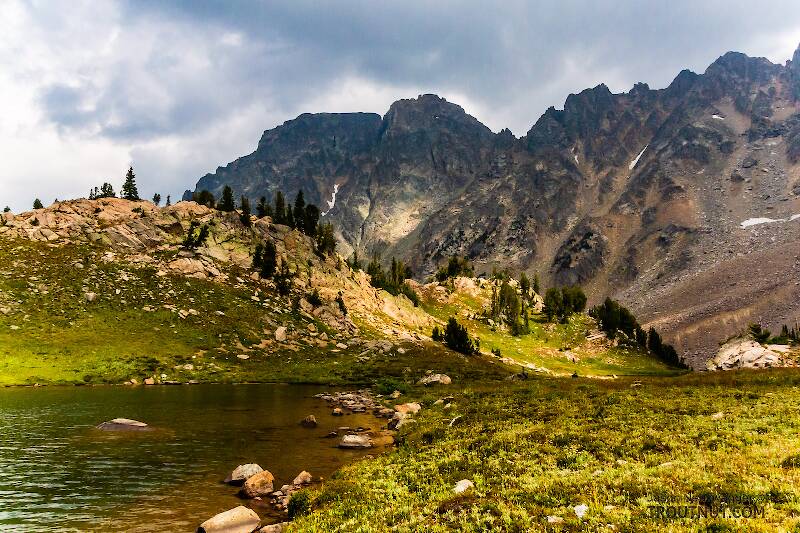
I found no fish in the main lake near the outlet, but in the tiny outlet stream itself I was able to score strikes from a couple of 3-inchers. This really excited me because it suggests that these fish are naturally reproducing and not all stocked. Nearly all high lakes stocked with Golden Trout throughout the West are located above barriers that are impassible both upstream and downstream, to prevent this lovely but exotic species from mingling with the natives in the creeks below. This means most of them rely entirely on stocked fish and there's nowhere for them to spawn, but a few rare lakes have an inlet or piece of an outlet that allows for natural reproduction above the isolating barrier. I was excited to have found one.
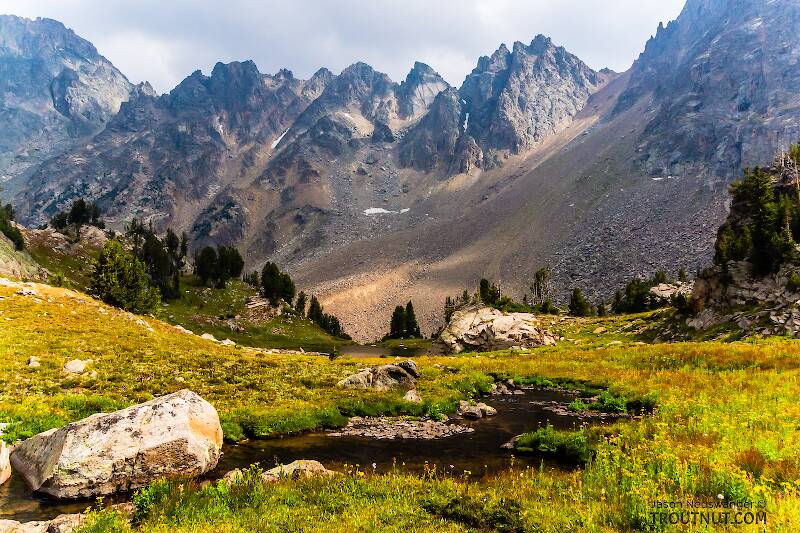
The small lake below (really just a pond in the outlet stream, no more than 5 feet deep) was everything I might have hoped, an easily-castable, aquarium-clear treasure with several small trout swimming around and rising. This was the agua bonita in which Oncorhynchus mykiss aguabonita belongs.
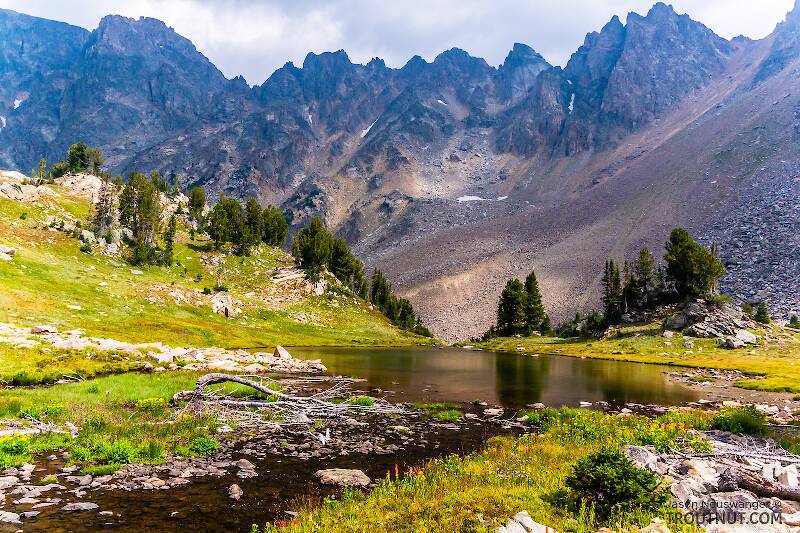
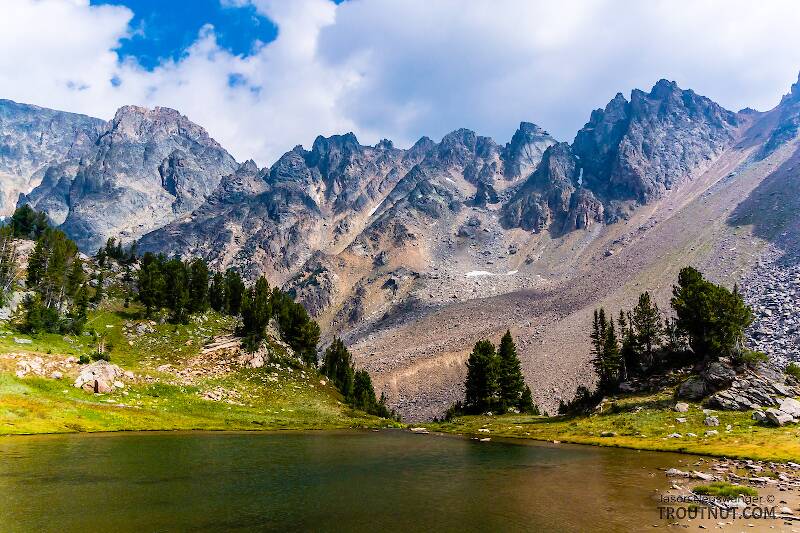
For the next hour or so, Lena and I cast to these fish as the weather bounced rapidly from sun to wind-blown sleet and back again. The fish weren't as easy as you'd expect of most trout in this environment, and they turned down more than a few good offerings. But they weren't as intransigent as their parents in the bigger lake, and eventually curiosity got the better of many of them.
I'm not sure which one of us was more excited when Lena caught her first Golden Trout, followed soon after by a nicer one:
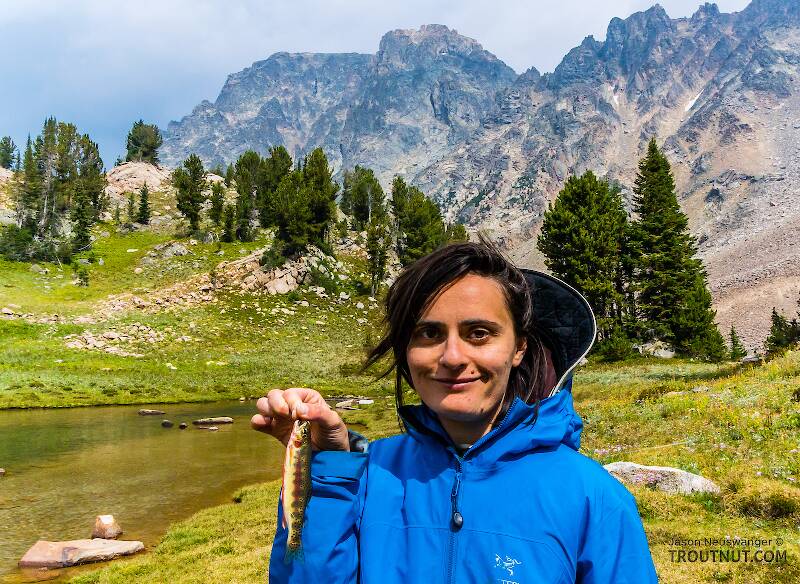
I caught seven or eight. The fish weren't big, but unlike the one I caught the previous night in the big lake and the one last year in Washington, they finally had the full-blown colors their subspecies is known for. I hardly have been more excited to hook a true gold nugget in that size.
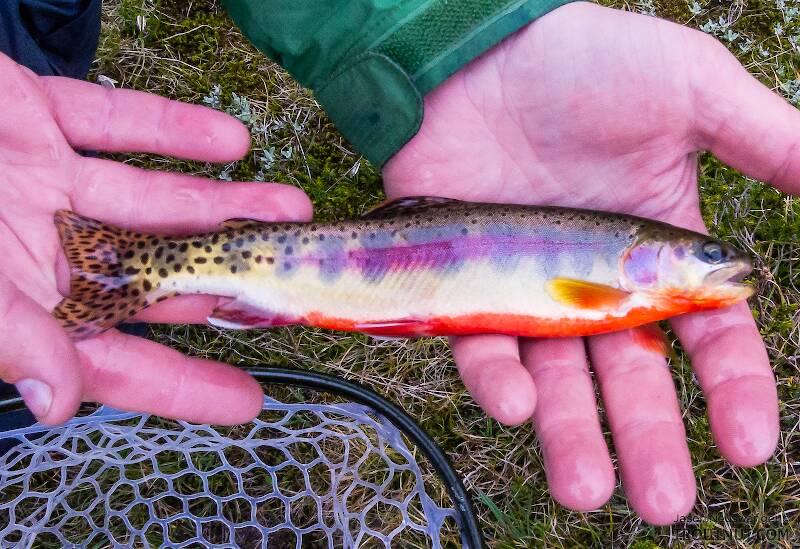
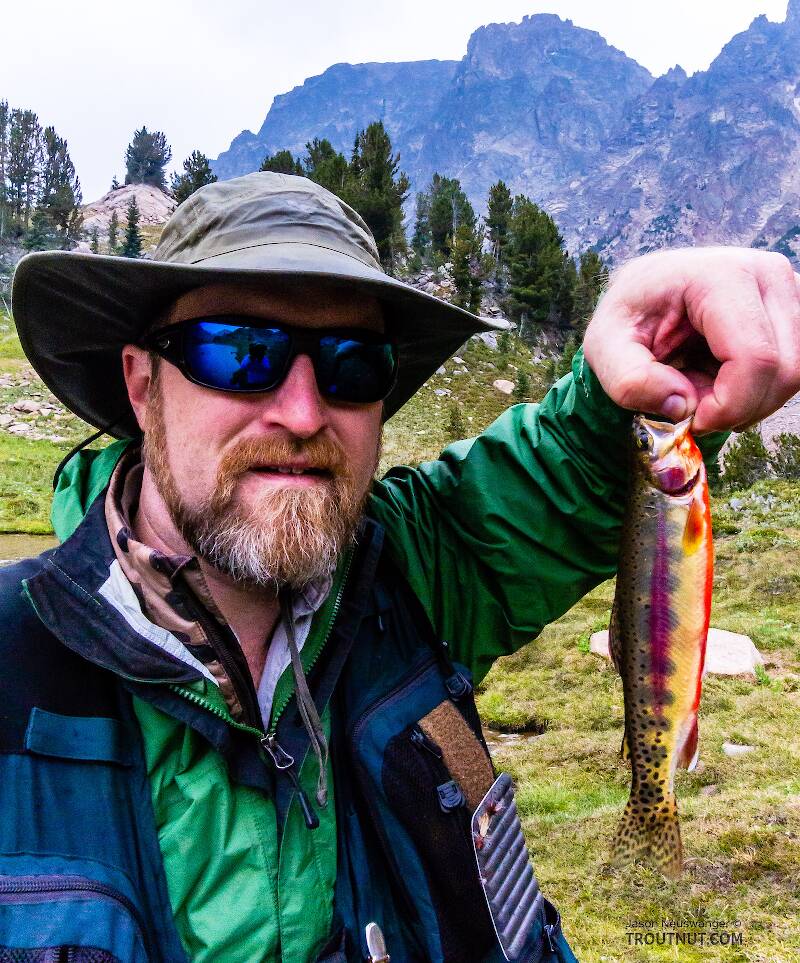
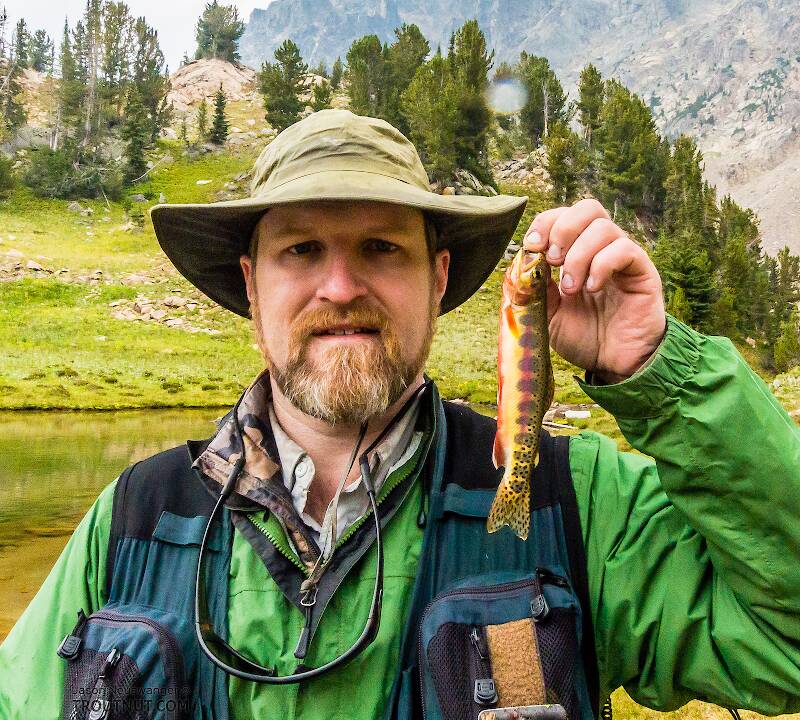
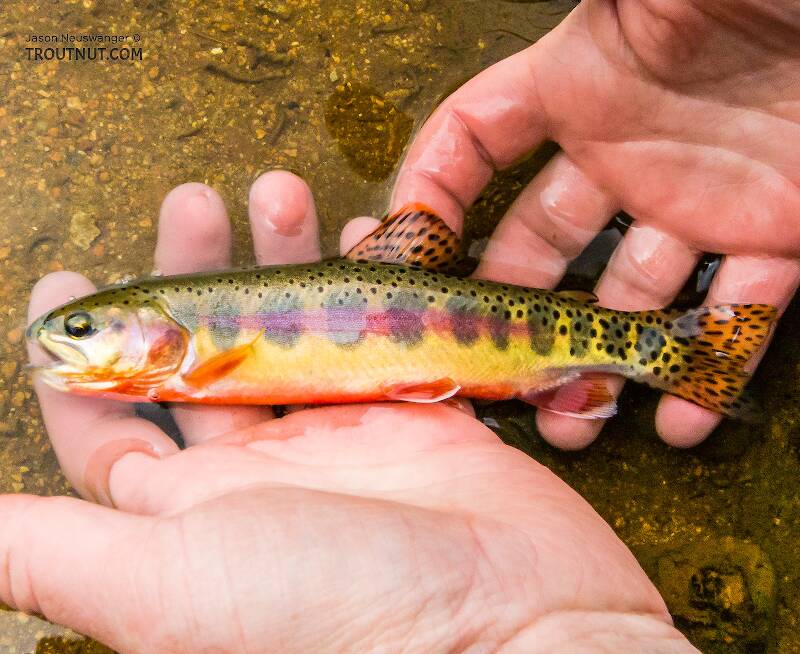
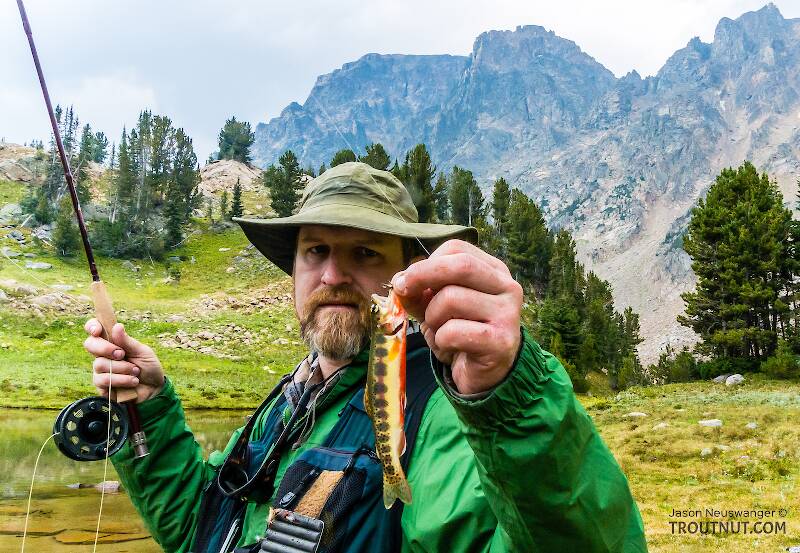
When it got to about an hour past the time we planned to be taking down camp and hiking out, the weather finally decided to stick with a plan and it wasn't in our favor. We had probably caught and released most of the fish in the little pond, anyway, so it was time to hurry back. The weather was showing on the tent:
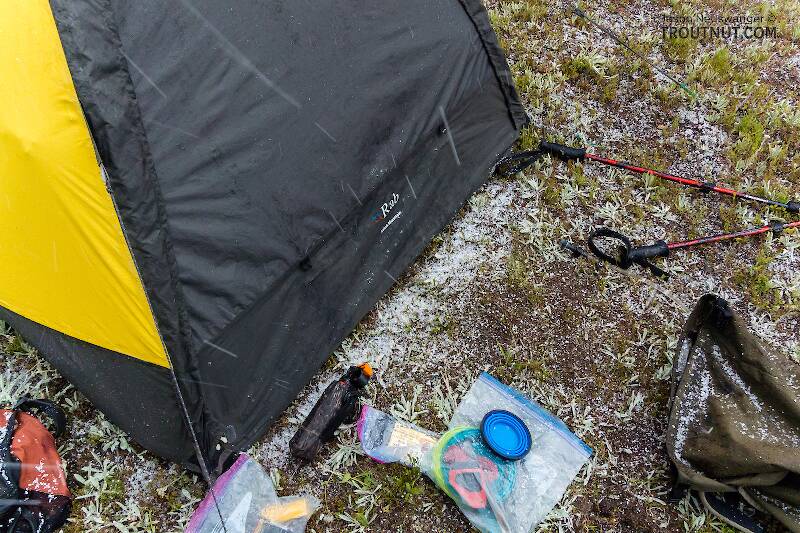
The hike out was fortunately uneventful, and with Lena's ankle feeling better we made good time back to the Jeep.
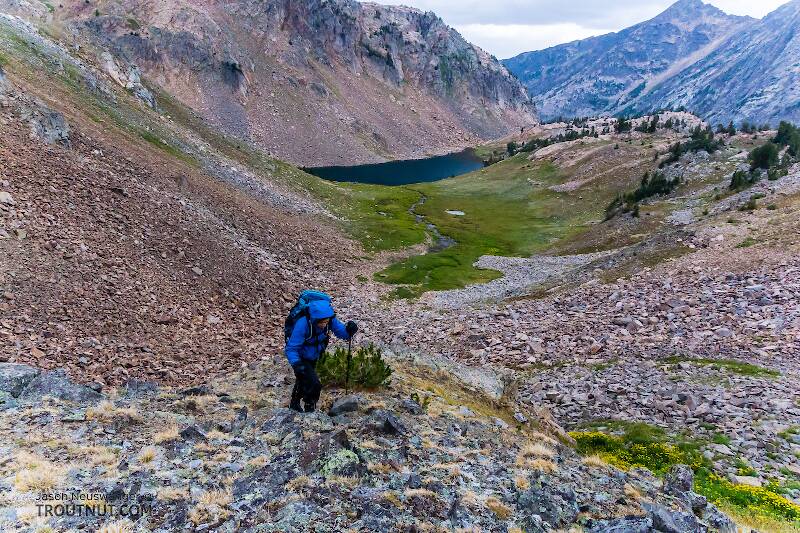
The drive down the mountain was easier, too, as we sped along at almost 3 mph in many places and beat our time coming up the hill by over an hour. Plans to car camp again were quickly abandoned when a warm lodge near the bottom of the hill had a vacancy. Lena earned a real bed with that hike!

